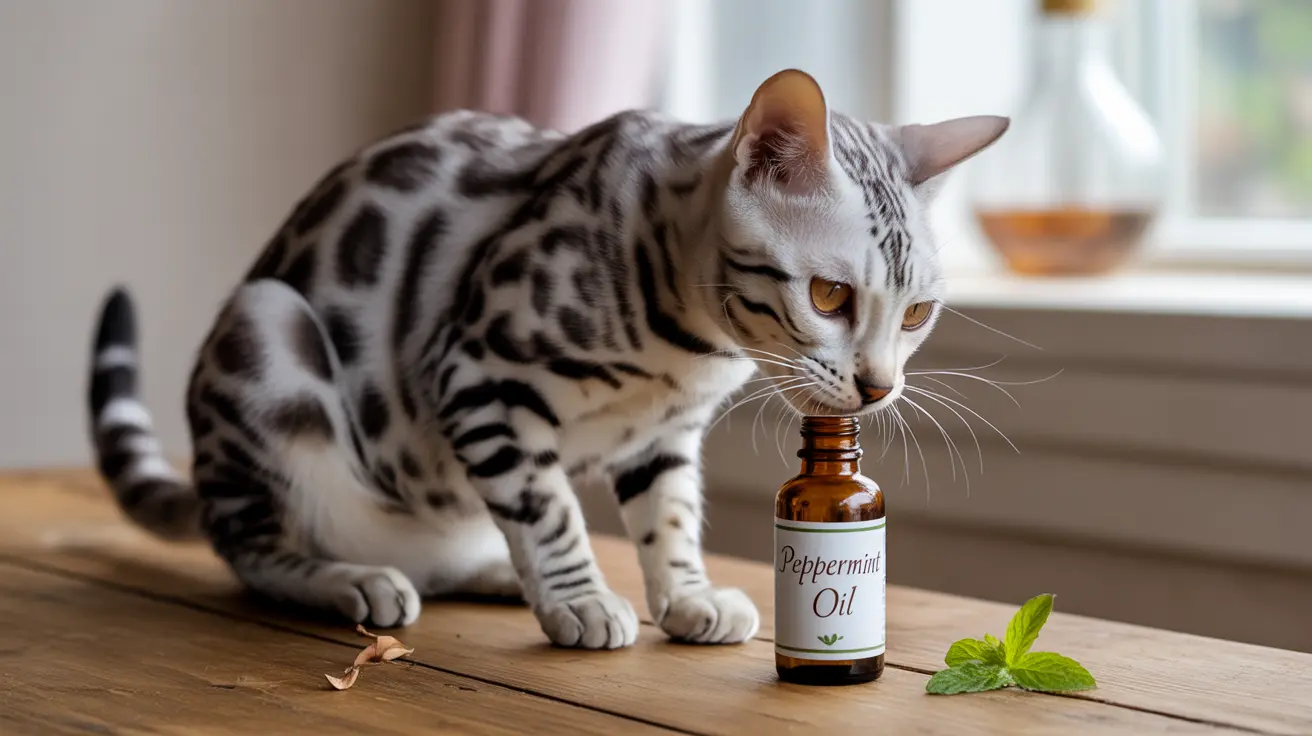Understanding Peppermint Oil and Cats
As pet owners increasingly seek natural alternatives to chemical flea treatments, peppermint oil has gained attention as a potential solution. However, veterinary experts have raised serious concerns about using peppermint oil for fleas on cats, citing significant health risks and limited effectiveness.
Before considering peppermint oil as a flea treatment, it's crucial to understand why cats are particularly vulnerable to essential oils and what safer alternatives exist for flea control.
The Science Behind Cat Sensitivity to Essential Oils
Cats have a unique biological makeup that makes them especially sensitive to essential oils, including peppermint oil. Their livers lack certain enzymes necessary to break down and metabolize phenolic compounds found in these oils. This deficiency means that what might be safe for humans or even dogs can be potentially lethal for cats.
Dangers of Using Peppermint Oil on Cats
When cats are exposed to peppermint oil, whether through direct application, environmental diffusion, or accidental ingestion, they can experience severe adverse reactions, including:
- Respiratory distress
- Liver failure
- Severe neurological symptoms
- Gastrointestinal upset
- Chemical burns on skin or mucous membranes
Even diluted peppermint oil can pose significant risks, as cats are sensitive to even small amounts of these compounds.
Effectiveness Against Fleas: The Truth
Despite popular claims, there is no scientific evidence supporting peppermint oil's effectiveness in killing or preventing fleas on cats. While the strong scent might temporarily repel some insects, it does not provide reliable or long-term flea control.
Safe and Effective Flea Control Alternatives
Instead of risking your cat's health with peppermint oil, consider these veterinarian-approved flea control methods:
- Prescription flea medications
- Regular flea combing
- Environmental flea control measures
- Professional pest treatment services
- Veterinary-approved flea shampoos
Prevention and Home Management
The best approach to flea control combines regular preventive treatment with environmental management. This includes:
- Vacuuming frequently
- Washing pet bedding in hot water
- Treating all pets in the household simultaneously
- Maintaining a regular flea prevention schedule
Frequently Asked Questions
Is peppermint oil safe to use as a flea treatment on cats?
No, peppermint oil is not safe for cats. Cats lack the necessary liver enzymes to process essential oils, making them highly toxic to felines.
What are the potential health risks for cats exposed to peppermint oil?
Risks include respiratory problems, liver damage, neurological issues, chemical burns, and in severe cases, death. Even small exposures can be dangerous.
Does peppermint oil effectively kill or repel fleas on cats?
No scientific evidence supports peppermint oil's effectiveness in killing or providing lasting protection against fleas on cats.
What are safer alternatives to peppermint oil for controlling fleas on cats?
Veterinary-approved flea medications, regular grooming with flea combs, and environmental control measures are safe and effective alternatives.
What symptoms should I watch for if my cat has been exposed to peppermint oil?
Watch for drooling, difficulty breathing, vomiting, lethargy, tremors, and unusual behavior. If you notice any of these symptoms, seek immediate veterinary care.
Conclusion
While the appeal of natural remedies is understandable, the risks of using peppermint oil for flea control in cats far outweigh any potential benefits. Always consult with your veterinarian about safe, effective flea control options that won't compromise your cat's health.






